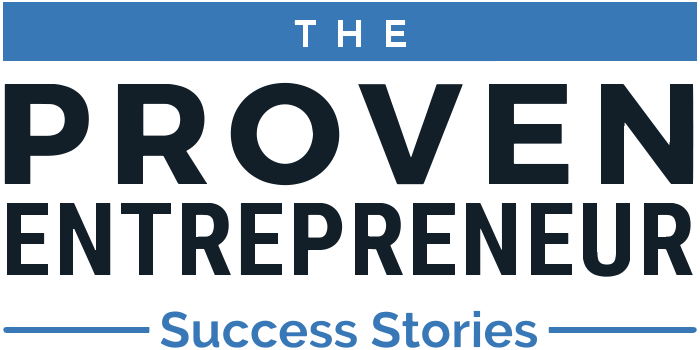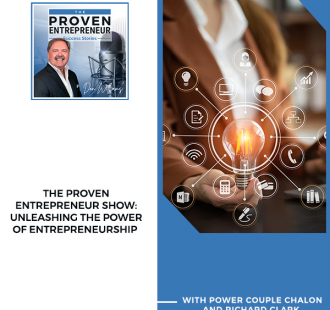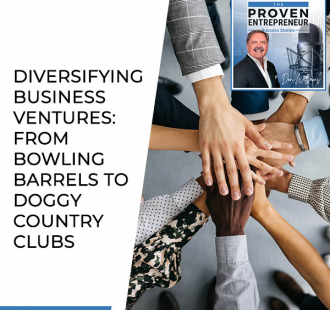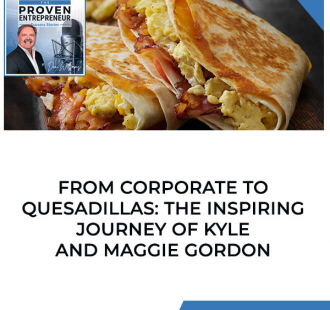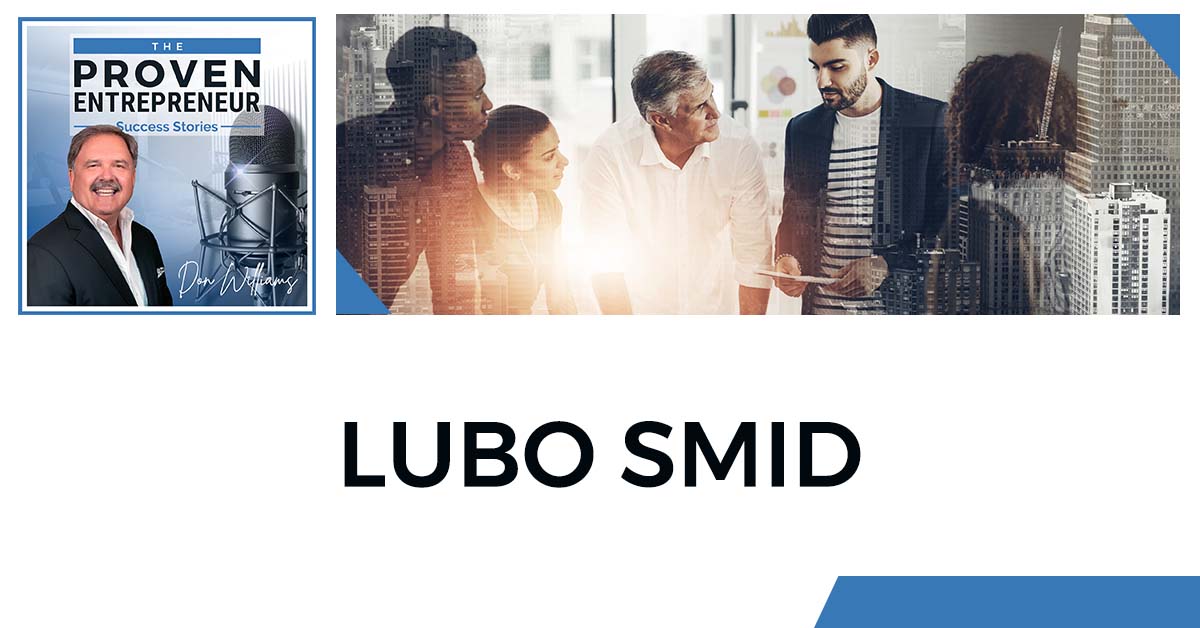
Entrepreneurship is not merely a destination; it is a perpetual journey of peaks, valleys, and the relentless pursuit of growth. In this episode, we sit down with Lubo Smid, the co-founder, and CEO of STRV, a leading software design and engineering company. Lubo shares personal anecdotes, highlighting the peaks and valleys of entrepreneurship and the continuous journey toward improvement. As he ponders on his initial encounters with exchanging time, energy, and creativity for money, he emphasizes time as the most valuable currency that we all possess. As the conversation progresses, Lubo shares the defining moments of his entrepreneurial journey, which includes a painful lesson that eventually transformed into a valuable learning experience. He stresses the significance of living according to core values, which provide a foundation for resilience in the face of challenges. Lubo’s own experiences serve as a testament to the idea that entrepreneurship offers more freedom, income, and fulfillment compared to traditional employment. Join us and discover how embracing entrepreneurship, living by your values, and embracing the unknown can lead to remarkable growth and success.
For information on how to work with Don visit Work With Don Williams
You can also reach out to Don Williams at https://donwilliamsglobal.com
Please join Don and his businesses in support of St. Jude’s Children Research Hospital in its Mission to cure Childhood Cancers. You can donate to St. Jude at stjude.org/donate
—
Watch the episode here
Lubo Smid
From Prague To Silicon Valley CEO
I have got a real treat for you, Lubo Smid, Cofounder and CEO of STRV. It’s a software design and engineering company that builds products for people like Barry’s, The Athletic, Microsoft, and ClassDojo. He’s passionate about cutting-edge tech. We’ve already talked about tech that doesn’t work these days. He’s Forbes 30 Under 30 entrepreneur constantly pushing the envelope and splits his time between Los Angeles and Prague unless he’s on some crazy adventure cycling or skiing way up the beaten path. Welcome, Lubo.
Don, thank you so much for a lovely introduction. I’m so happy to be here on the show with you.
I am thrilled to have you. You’re one of my very best friends. I’ll say escape. She would say escape from Prague many ago. I’m going to take you back all the way to the little Lubo, 5 years old up to 18. In your childhood home, however that worked, was there an entrepreneur in your house who set an example for you?
Both of my parents were entrepreneurs at some point in their career and I can very confidently say that it is one of the reasons, if not the strongest reason, why I decided to pursue the entrepreneur journey. It’s been instilled in my life very early on since my childhood. I still remember the days as a kid when I was playing an accountant sorting out invoices and so on. I know it sounds weird when I say it, but it definitely was a decent part of me growing up when I saw both of my parents run their entrepreneurial journeys.
Another example. My mom had a couple of flower shops so I would even go with her to pick the flowers and learn a lot about different kinds of plants, how to select the right ones, and how you work with the inventory. There are so many of these examples and I’m very happy that you asked that question because that was definitely the influence. I have seen it right in front of me. I think that’s one of the reasons why I’m here.
I’m guessing when your mom and dad were entrepreneurs, it wasn’t that easy there.
It was not. Of course, there have been moments of huge successes. There have been moments when things were not going so well and were quite problematic and issues on all fronts. I think that’s what the entrepreneurial journey is all about. It is like a rollercoaster ride. You have the successes to celebrate but you also have the valleys that you need to get through that are filled with obstacles, challenges, and overall things that are not pleasant. Yet most definitely, I have seen both of those throughout the many years.

I love what you said about the peaks and valleys of entrepreneurship. There are highs and lows. This show is about encouraging people who are not entrepreneurs to take that step or to encourage entrepreneurs to take the next step because entrepreneurship is a path that is a journey. You’re never really at the destination. There’s always some way to improve.
Even though there are peaks and valleys in entrepreneurship, there are peaks and valleys in life and non-entrepreneurship. There’s more freedom, income, and fulfillment on the entrepreneur side of the table than there is on the employee side of the table. Still in your childhood home, 5 to 18, what’s the first job you had where you got paid? Maybe you didn’t have a job. Maybe you sold your own flowers or you were a budding entrepreneur. What was the first thing you did where you traded time, effort, and ingenuity for currency?
Both of my parents were entrepreneurs since my very early childhood, I was helping them with their businesses. I would not consider this being my first experience. What I would go back and look at is my first internships and then later on me taking a job at a construction site. I was trying it all. I worked as a security guard during summer nights. I tried all sorts of things as I was building up the future path that led me to building software. I was still combining the two, and that was interesting.
I would be working as a night security guy. You don’t really do much. You just need to be there in case something happens. I would leverage the time to code and learn other things. You can apply that to many other things as you are navigating your life. If the job requires you to only be there and you can combine it with leveraging the time for something else, you should pick it up and go for it. That’s what I did back in the days. You are basically getting paid twice in a way.

When you think about it, the primary currency all of us has is time. We all have the same 86,400 seconds in a day. How we choose to spend or invest those seconds has a big effect on what we achieve. After school, leaving your childhood home, and setting out on your own, you moved to the South of France and lay on the beach, and joined the army. What did you do? Did you go to university? Did you start your own company? Did you get a job?
Going out of high school, I already had a freelance engineering gig going on. That’s pretty much how I went by covering my student life. I went to university. I also pursued Computer Science combined with business. I stayed there for a little bit but felt like I wanted more of the international experience, so I went to study abroad. I went to the UK, stayed there for a year, finished my Bachelor’s degree, then went to the US. I studied at a military university in Northfield, Vermont. When I got back, I finished my Master’s. That was pretty much the time when I joined my co-founders and we started building the business together.
How old is the business? How old is STRV?
STRV is a little bit older than my history when I joined in 2012, so around 12 years now in 2023. My co-founders were on the path already when I joined them. We all got together in 2012 and have been building and scaling the company. When I joined, it was a group of students at that time that had a solid start, but it was five people. That was an interesting moment. Over the years, we have managed to scale it up to about 200. We have seen quite an interesting growth. Nothing to compare to the big guys, but it was definitely an interesting ride.
Thinking back across your entrepreneurial career, I want to ask you about a hard lesson. Something that happened where when it happened, you’re hurt. Maybe after some time, distance, and some retrospection, you look back and say, “That was a pretty good thing for us to happen,” but at the time, it did not seem good. It hurt. Do you have a moment you can share?
I have many moments like that, and as you are asking this question, it comes down to the integrity that I have as a person. I feel like I operate from my perspective with a very high degree of integrity. Sometimes you realize that if you operate that way, you would expect that the same will return on the flip side to you. Unfortunately, after having experienced many situations where this was not the case, I realized that I’m not keeping a high level of integrity for others.
It’s mostly for me to feel good about what is my path in navigating life and business. The fact that other people don’t match that, I think the world is not zero some game in the end. It is likely going to return in a different flavor somewhere else, but I take it a lot less personally than I would early on. I already went through this many times and will keep that approach no matter how others are acting.
I feel like this is a way of how I want to do business and I know that there are many other ways you can be doing business. Not all of them are a fit for me, and I understand. Everyone needs to pick their approach, but this is my approach. I will probably not name one particular example, but I think that every one of us can point to times when we felt betrayed and vulnerable. We felt cheated on and so on.
I have gone through so many of these moments, but I always try to pick up and look at it from a grander perspective and say, “Did I stand up for the values that I care about? Did I act according to my way of thinking?” If yes, then everything is fine. Of course, everyone makes mistakes. I make mistakes as well but I try to correct them if possible and learn from them.
Something you said that I want to key on is living according to your values. It’s really important for an entrepreneur and a company to have great core values and some code by which they live. Everything will not go your way. People will take advantage sometimes and bad things will happen. It’s called life. Bad things will happen sometimes, but it doesn’t have to crush you if you’re living your values. What about a warp-speed moment? Things are going pretty good in your business. You make a hire, implement a new procedure, and develop a new product and all of a sudden, things are going good. Do you have one that you could share?
Again, many moments but for us, what kickstarted everything was the move from the Czech Republic to Silicon Valley. I think that kickstarted everything. I say this more than I should, but people often ask me. I come from the Czech Republic and have managed to build a very strong network in the US. I have many friends, business contacts, great clients, great portfolio. People often feel there is a secret formula for entering a foreign market, especially the US one.
I look at it and I say it’s extremely simple. The only thing that you need to do is to go there and spend time. Is there a definite amount of time that you need to spend there? No. If you want to do a big business that is based in the US, you are likely not going to go there for two weeks and think that’s it. I have spent nearly half of my professional career being on the ground in the US, and I consider it my second home basically.
Without that, it’s extremely hard, especially in the services business that we are in with STRV to establish a foreign market. This boosted us as a company that we made that leap. A lot of people would love to experience something similar that we went through but they can’t imagine to be leaving their homes. It’s tricky. I know it’s not for everyone, but that’s the most straightforward path and that’s what gave us the scale.
Was it easy when we got there? Definitely not. There are a lot of other things that you need to get through by doing the move. It sets you apart from anybody else. In the same way, I was talking to a friend of mine, Ryan Rottman, a Hollywood actor who has now also turned into an entrepreneur running his own startup. He was telling me about auditions and how being prepared sets you apart from 80% of the people who are not prepared for the auditions.
There are a lot of other things that you need to go through by doing the move that sets you apart from anybody else. Click To TweetIt’s not just the auditions. It’s fundraising and interviews. You can apply that for anything that you do in life. If you are prepared, then you are setting yourself apart from a large group of people. It ties very nicely with me describing how the move already sets you apart as well.
There’s another saying that showing up is 50% of success. Show up, be on time, have a smile on your face, be willing, and be prepared puts you ahead of another 30% or 40%. Obviously, not too many worldwide premier software companies based in the Czech Republic, but Silicon Valley is the epicenter for that, so it makes sense. What you either had to overcome and/or what many other people don’t overcome is the fear of the unknown. It’s not really the fear of moving. It’s the fear of, “I don’t know what’s going to happen.”
One thing I think entrepreneurs do really well is if you get out of your comfort zone, you go places other people don’t go. Things will happen for you that doesn’t happen for other people because you’re actually out there doing it. What about something you know that you hold near and dear? This show is for people who’ve not yet started their entrepreneurial journey so they’re looking to take that first step, or people who started their path and are looking to take the next step. As you and I know, there’s no final destination. It’s not like, “I’ve got to the train station. I’m done.” There’s always a next step. What’s some nugget of wisdom from you, Lubo?
The journey is the destination and you have to enjoy the journey. If you are asking for a nugget of wisdom, and I like that term a lot, if you pick a path, then make sure that this is something that you are passionate about. You can carry on doing it for a long time to make it somewhere. Also, you are in line with the purpose and you see it. The way I approach things, it’s definitely a positive as well as a negative. If you are convinced that you want to achieve something and you give it your best, it’s very likely that you will get there. You don’t know when and how fast it’s going to be. It’s not going to be next week or next month.
Is it going to be next year? Is it going to be 3 years from now or in 10 years? I don’t know, but you have to be enjoying the journey because if you are enjoying the journey, you see the purpose. You are passionate about it, then you will stick around for a lot longer. I’m all for giving up when you feel it doesn’t make sense.
I should be doing more of giving up than I do. I’m the kind of person that if I say, “This is what I’d like to achieve,” I’ll be doing it forever. I’m not that extreme, but my threshold for letting things go is a little too high, but at the same time, you don’t want to have this threshold too low.
Finding the balance and making sure that you optimize for success. You optimize for success if you can keep doing something for a decent amount of time. I see many people around me tend to jump from one thing to another and then back and forth. They are not convinced whether this is the right thing. I see them struggle and not being able to carry on for some time.
I’m not saying that you need to be following the path that I’m following. I’ve been doing the same thing for many years. I still enjoy it and keep doing that. Maybe that’s not necessary, but don’t expect that if you switch things every 3 to 6 months, something super meaningful will come out of that. Can it? Yes, definitely. I would contribute that to a fair amount of luck rather than anything else.
I totally agree. You have to have some consistency. That doesn’t mean that you cannot stop. You can. I like what Warren Buffett says. He says, “I say no to 90% of what crosses my desk.” He shuts it off right at the beginning. If it doesn’t fit his mission and his purpose, he says no and lets it pass.
I’m going to put you in a time machine. You’re going to step into the time machine, I’m going to send you all the way back, and you’re going to get a couple of minutes to talk to twenty-year-old Lubo. Confront your twenty-year-old self. What would you tell your twenty-year-old self that you know now that you didn’t know then but would have helped you make things easier and faster? In the time machine, you go all the way back. We introduce you to twenty-year-old Lubo. What are you going to tell him?
I would tell myself to surround me with more mentors, leaders, and people that I can learn from. For a decent part of my career, I was learning by doing and by many mistakes. If I go back to my early twenties, I’m not taking all of the experience that I have. However, if I relied more on people that could mentor me, it would lead me to a different place than where I am now, where I find a lot bigger value in sharing experiences with others and having a close circle of people that have been there, done that, that can advise me on things.
If you rely more on mentors, it could lead you to a different place than where you are today. Click To TweetIt’s invaluable to have that. In my early twenties, I was trying to fight it with the amount of work I was producing rather than any smart approach to it. Did I feel like I did it entirely wrong? Definitely not. It worked out, hopefully. Putting a little bit more structure into it could yield great results, and that would be my feedback to the twenty-year-old Lubo.
In my own career, early on, I many times thought I was the smartest person in the room. I wasn’t always the smartest person in the room, but I thought I was. I didn’t use other resources. Now, with my own clients, I’m like, “If you really want to go from point A to point B, let’s find somebody who went to point B. You put your feet in their footsteps and you’ll end up there.” Mentors, people who will share their experiences, are unbelievably valuable to an entrepreneur. Lubo, as the proven entrepreneur tribe, how can we support you? Anything we can do for you?
That’s a very wide question. We tend to do many things with STRV. Of course, we focus on building great digital products. If there is something where we could be helpful, we would love to explore that opportunity. If there are entrepreneurs that are looking for a strong tech partner, then it’s not only going to help me, but we can help both ways and build something great together.
That probably would be the ask from my side because, over the years, we have gathered a lot of skill and experience in terms of building digital products and launching them, marketing them, and scaling them, ranging from all kinds of mobile apps in the App Store, Google Play, or Web Solutions. These days, artificial intelligence is booming. We have a strong team around that. I would love to hear from people interested in chatting more about that. That could potentially be something fun to do together.
What would be the best way for someone to reach out? Should they go to the website or call a number?
The best that I would suggest as we are talking here, and I perceive this as a little nice, unofficial conversation. I’ll always like when people hit me up in DMs on Instagram, Twitter, or LinkedIn. It’s fairly simple. Lubo Smid is my username everywhere. I have such a benefit of having a very unique name. It’s extremely easy to find me. Those would be the preferred channels.
If you have a need or talk about putting technology to work for your business, reach out to Lubo Smid. He’s almost everywhere on social media, and that’ll go directly to him. Lubo, I am so grateful for you joining me and sharing your wisdom. Thank you very much.
Thank you, Don, for having me. I had a blast.
This is another episode. See you next time. Thanks. Bye.
Important Links
About Lubo Smid
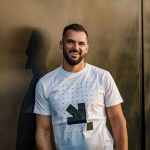 Lubo Smid is the Co-founder & CEO of STRV, a software design & engineering company that’s built products for the likes of Barry’s, The Athletic, Microsoft and ClassDojo. Passionate about cutting-edge tech (especially in web3), the Forbes 30 Under 30 entrepreneur is constantly pushing the envelope — incubating products under STRV Labs, welcoming prominent founders to his Next Level Show podcast or sharing his journey via articles and socials. Lubo splits his time between LA and Prague, unless he’s on some crazy adventure, cycling or skiing way off the beaten path.
Lubo Smid is the Co-founder & CEO of STRV, a software design & engineering company that’s built products for the likes of Barry’s, The Athletic, Microsoft and ClassDojo. Passionate about cutting-edge tech (especially in web3), the Forbes 30 Under 30 entrepreneur is constantly pushing the envelope — incubating products under STRV Labs, welcoming prominent founders to his Next Level Show podcast or sharing his journey via articles and socials. Lubo splits his time between LA and Prague, unless he’s on some crazy adventure, cycling or skiing way off the beaten path.
For information on how to work with Don visit Work With Don Williams
You can also reach out to Don Williams at https://donwilliamsglobal.com
Please join Don and his businesses in support of St. Jude’s Children Research Hospital in its Mission to cure Childhood Cancers. You can donate to St. Jude at stjude.org/donate
